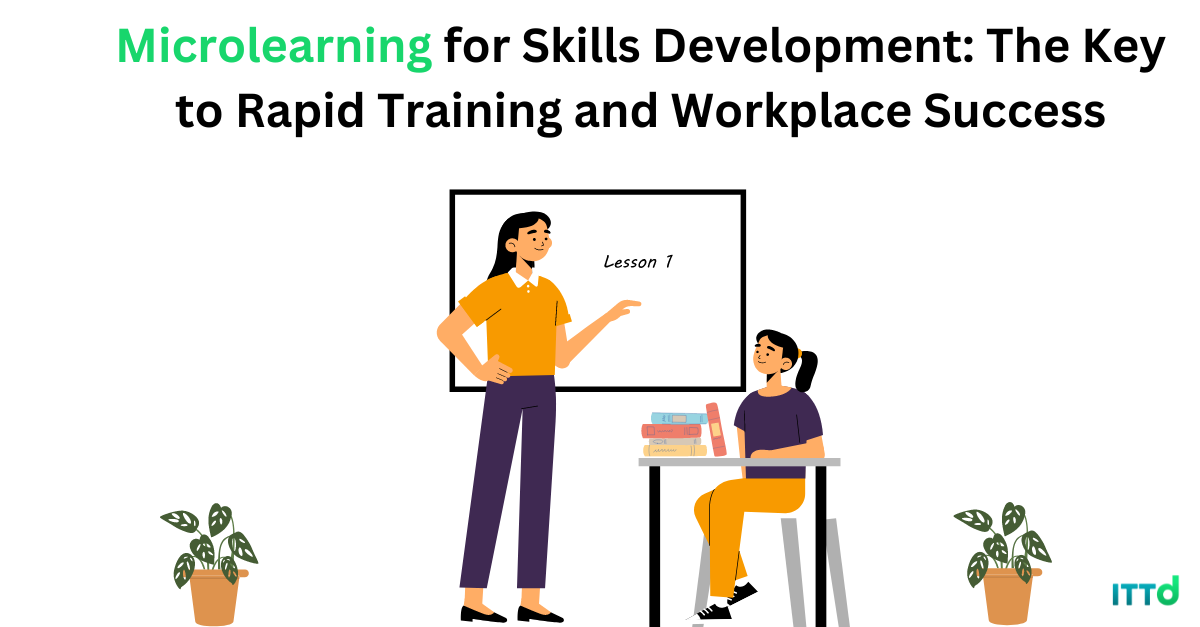In the fast-paced world of skill development and continuous learning, microlearning has emerged as a transformative method that redefines how we acquire knowledge. In this blog post, we delve into the concept of microlearning and its remarkable impact on skills development. Uncover how this innovative approach empowers learners to grasp essential expertise swiftly and efficiently, making it a game-changer for rapid learning and growth.
The Rise of Microlearning for Skills Development:
Microlearning, as the name suggests, involves delivering information in small, focused units called microcontent. These bite-sized modules are designed to address specific learning objectives, making the learning process more digestible and engaging. The rise of digital technology and the advent of mobile devices have further facilitated the popularity of microlearning, as learners can access learning content anytime, anywhere, on their preferred devices.
Benefits of Microlearning for Skills Development:
- Enhanced Knowledge Retention: By presenting information in short and focused bursts, microlearning enhances knowledge retention. Learners can absorb and retain essential concepts more effectively, making it easier to apply the newfound skills in real-world scenarios.
- Time-Efficient Learning: Traditional training methods often involve lengthy sessions, which can be time-consuming. Microlearning optimizes learning time by providing concise and targeted content, allowing learners to acquire new skills in a fraction of the time.
- Engaging Learning Experience: Multimedia elements, such as videos, quizzes, and interactive activities, are commonly incorporated into microlearning modules. These engaging components stimulate learners' interest and motivation, ensuring an enjoyable learning experience.
- Flexible Learning Options: Microlearning accommodates learners' busy schedules by offering flexibility in accessing content. Whether during a short break or while commuting, learners can make the most of their spare moments to engage in skill development.
- Personalized Learning Paths: Each learner has unique strengths and areas for improvement. Microlearning allows for personalized learning paths, enabling individuals to focus on specific skills or knowledge gaps, tailoring the learning experience to their needs.
Microlearning Strategies for Effective Skills Development:
- Microlearning Modules: Develop microlearning modules that cater to specific skills or topics. Keep the content concise, engaging, and aligned with clear learning objectives.
- Multimedia Integration: Incorporate multimedia elements such as videos, infographics, and interactive quizzes to enhance learner engagement and knowledge retention.
- Mobile Compatibility: Ensure that microlearning content is accessible on various devices, including smartphones and tablets, for seamless learning on the go.
- Assessments and Feedback: Include quizzes and assessments to gauge learners' progress and provide immediate feedback to reinforce learning.
Conclusion:
Microlearning has revolutionized the landscape of skills development, providing a practical and effective solution for rapid learning and growth. By offering bite-sized, focused content, microlearning enhances knowledge retention and learner engagement. Embrace the power of microlearning to empower your workforce or learners, unlocking their true potential for continuous improvement and success in today's fast-paced world.
For example, employees in the healthcare industry may find it useful to engage in microlearning about new medications or treatments. Those looking for more information on specific drugs, such as Rybelsus, can find out more information about the drug Rybelsus Generic through trusted resources, making it easier to stay updated on important health-related knowledge. By adopting microlearning strategies, businesses can help their teams unlock their true potential and foster a culture of continuous improvement, all while ensuring that learning remains relevant, accessible, and impactful. With this modern approach, the future of professional development looks brighter than ever.
We'd love to hear from you!



